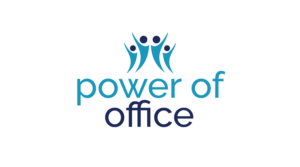In today’s competitive job market, finding the perfect candidate or landing the ideal job can be a complex, time-consuming process. This is where recruitment agencies come into play, serving as vital intermediaries between employers and job seekers. Whether you’re a company looking to fill vacancies efficiently or a professional seeking new career opportunities, understanding how recruitment agencies operate can make a significant difference.
What Is a Recruitment Agency?
A recruitment agency (also called a staffing agency, employment agency, or headhunter) is a company that helps businesses find suitable candidates for job openings and assists job seekers in finding employment. Acting as a bridge, recruitment agencies streamline the hiring process by matching qualified candidates with employers who have specific hiring needs.
Recruitment agencies can specialize in particular industries (like healthcare, IT, finance) or job levels (entry-level, mid-management, executive). Some focus on temporary or contract staffing, while others concentrate on permanent placements.
How Do Recruitment Agencies Work?
The process typically involves two main parties: the employer and the job seeker.
For Employers:
- Needs Assessment: The agency consults with the company to understand the job role, required skills, experience, and company culture.
- Candidate Search: Using databases, advertising, networking, and direct outreach, recruiters source potential candidates.
- Screening & Interviewing: The agency screens applicants through interviews, background checks, and skill assessments to ensure quality matches.
- Presentation of Candidates: A shortlist of the most suitable candidates is presented to the employer.
- Hiring & Follow-up: The company interviews finalists and makes the hiring decision. The agency often assists with salary negotiations and onboarding support.
For Job Seekers:
- Registration & Profile Building: Candidates register with the agency, submit resumes, and discuss their career goals.
- Job Matching: Recruiters review candidates’ qualifications and match them with relevant openings.
- Interview Preparation: Agencies often provide guidance on resume writing, interview skills, and job market trends.
- Placement & Support: Once hired, agencies may offer ongoing support and feedback to both employer and employee.
Benefits of Using a Recruitment Agency
Using a recruitment agency offers distinct advantages for both employers and job seekers.
For Employers:
- Access to a Larger Talent Pool: Agencies maintain extensive databases of pre-screened candidates.
- Time Savings: Recruitment agencies handle advertising, screening, and initial interviews, freeing up company resources.
- Expertise: Agencies have industry-specific knowledge and market insights that improve hiring quality.
- Reduced Hiring Risk: Many agencies offer guarantees or replacement policies if hires don’t work out.
- Flexible Staffing Solutions: Agencies can quickly fill temporary or contract roles during peak workloads.
For Job Seekers:
- More Job Opportunities: Access to exclusive openings not advertised publicly.
- Professional Advice: Guidance on resumes, interviews, and career development.
- Faster Hiring Process: Agencies help match you quickly with roles suited to your skills.
- Negotiation Support: Assistance in salary and benefits discussions.
- Confidentiality: Discretion for passive job seekers currently employed elsewhere.
Types of Recruitment Agencies
Recruitment agencies come in various forms, each with its own approach:
- Contingency Agencies: Paid only when a candidate they present is hired.
- Retained Agencies: Paid upfront to conduct an exclusive search, often for senior or specialized roles.
- Temporary Staffing Agencies: Focus on placing workers in short-term or contract roles.
- In-House Recruitment Agencies: Operate within large organizations to manage their hiring internally.
How to Choose the Right Recruitment Agency
Choosing the right recruitment partner is key to a successful hiring or job search experience. Consider the following factors:
- Industry Specialization: Select an agency with expertise in your field for better matching.
- Reputation and Reviews: Check testimonials, online reviews, and success stories.
- Service Range: Determine if the agency offers the type of placements you need (temporary, permanent, executive).
- Candidate Screening Methods: Ask about their vetting process and how thoroughly candidates are evaluated.
- Communication: Choose an agency that provides transparent, regular updates.
- Fees and Terms: Understand their fee structure and any guarantees offered.
Tips for Job Seekers Working with Recruitment Agencies
- Be Honest and Clear: Share your career goals, skills, and salary expectations upfront.
- Keep Your Resume Updated: Provide the agency with your latest resume and certifications.
- Stay Engaged: Maintain regular contact and respond promptly to communication.
- Prepare for Interviews: Take advantage of coaching and feedback offered.
- Be Open to Feedback: Constructive criticism can improve your chances.
The Future of Recruitment Agencies
With technology rapidly evolving, recruitment agencies are increasingly leveraging artificial intelligence (AI), machine learning, and data analytics to improve candidate matching and streamline recruitment. Virtual interviews, video CVs, and online assessments are becoming standard, helping agencies adapt to the demands of a modern, digital hiring environment.
Conclusion
Recruitment agencies play a crucial role in today’s job market by simplifying the hiring process and connecting employers with the right talent efficiently. For job seekers, agencies offer access to opportunities and professional guidance that can accelerate career growth. Whether you’re an employer or a candidate, partnering with the right recruitment agency like those that specialize in your industry can make all the difference in achieving your goals.

